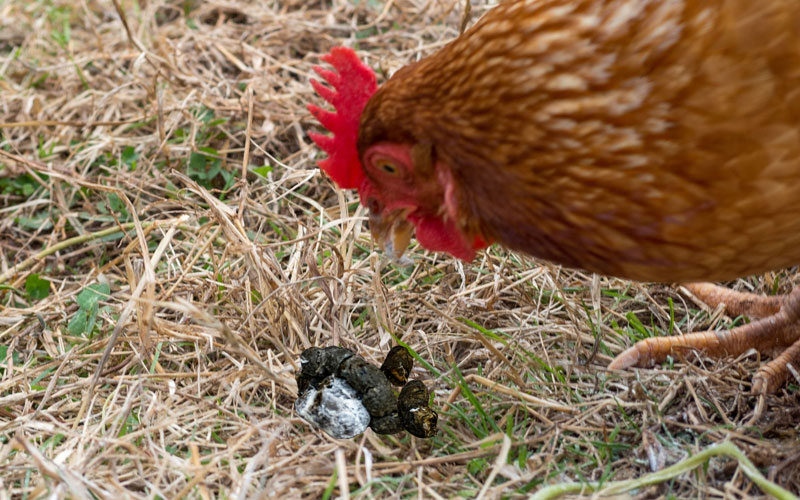There is this peculiar habit among these homely-feathered animals called chickens; a curious phenomenon that leaves many scratching their heads – chickens munching on their own droppings. It might sound, off-putting, or even irritating but fear not, for this behaviour is deeply rooted in their history and biology.
Believe it or not, this rather unappetising practice is perfectly normal among chickens whether reared on a small or a large scale. Chickens, it turns out, are not alone in their penchant for what is called “coprophagia” – the act of consuming faeces. This behaviour is coded into their genetic makeup and has been a part of their existence for thousands of years. So, why on earth do chickens indulge in such behaviour despite they are not ruminant animals? The answer lies in their pursuit of essential nutrients! When you catch your chickens pecking at their own droppings, they are most times, not after the gross stuff. Some of the things they eat in their poop include: insect eggs, insect larvae, parasitic worms, undigested grains, and other undigested food particles that chickens love.
They are usually on a quest for seeds, grains, and other vital nutrients hidden within their faeces. Yes, you read that correctly; most chickens are faecal eaters, considering droppings an everyday delicacy. Naturally, chickens are discerning eaters. They won’t simply gulp down anything they find in their waste. Instead, they meticulously inspect their droppings for undigested goodies. If they spot something valuable, like undigested chicken feed or plant material, they won’t hesitate to peck at it. Young chickens especially do this to maintain a healthy glut, known as crop in them, as they need extra microbes to help them break down their nutrition.
This behaviour of feaces-eating among chickens can also signal a deficiency in their diet. As a farmer, you must pay close attention to your flock; their poop-eating tendencies can be a subtle clue too and a call for action in their nutrition. If chickens lack essential minerals, they might resort to dining on their own waste. It’s a bit like how they turn to eating their own eggs when calcium is scarce. So, when you witness this behaviour, it’s time to reassess their diet.
The dark side of droppings consumption
There’s a downside to this seemingly innocuous habit. While it’s a part of their normal behaviour, there are risks involved. Chickens can fall ill after indulging in their faeces, and one sick bird can transmit illness to the entire flock, if their droppings contain harmful bacteria like salmonella. In conclusion, the world of chickens is indeed a fascinating one, filled with quirky behaviours and hidden nutritional wisdom. While the idea of chickens eating their own poop might not be the most appetising topic, it’s a reminder that nature operates in mysterious ways, often driven by the pursuit of survival and nourishment. So, the next time you catch you’re your chickens engaging in this peculiar act, remember that it’s all part of their ancient heritage, or it is a sign that they’re trying to stay healthy in their own unique way or even a way to tell you that they are too choked up or even have a deficiency in their nutrition and you would need to take better care of them lest they fall sick and die. Also, remember that if you have sick chickens or animals on your farm, you should prevent your healthy chickens from eating the poop of the sick animals.




2 Comments
New knowledge acquired
Interesting observation on chickens 🐓